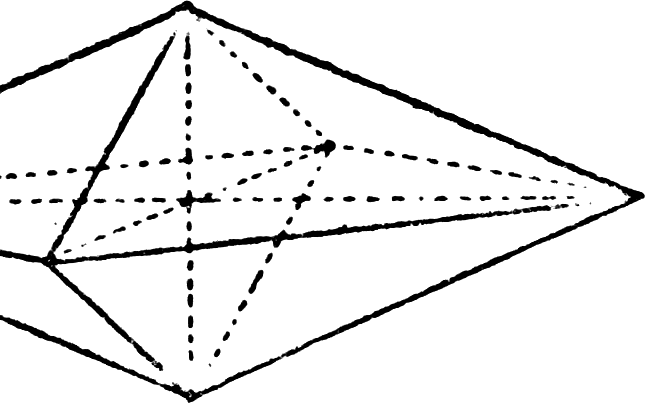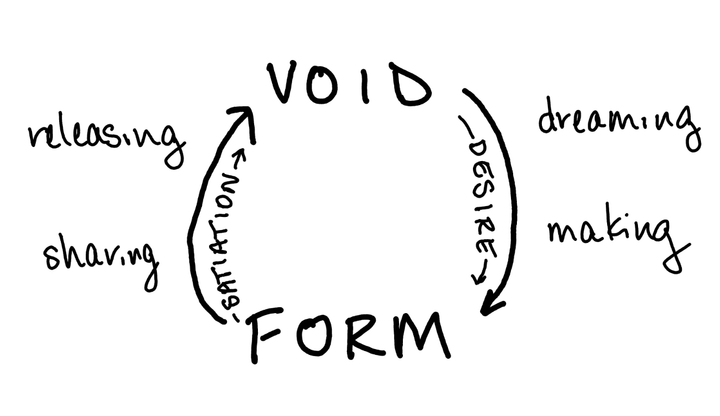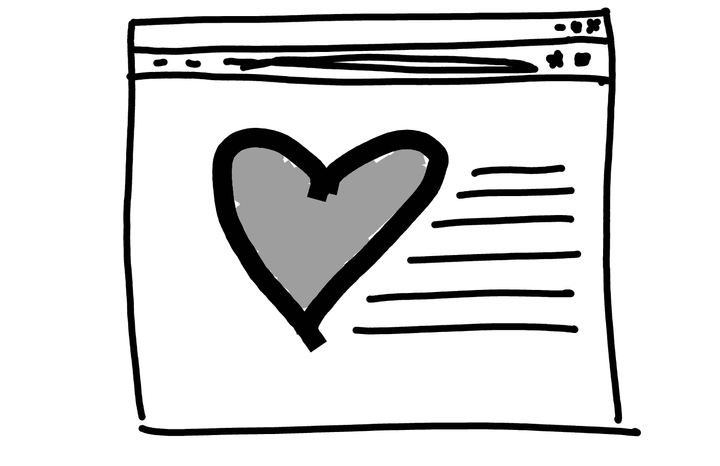The caterpillar forgets how to walk
I’ve made things too complicated again.
It’s almost like, If You Give a Mouse a Cookie, except for online presence. I got this secret blog, but then I wanted a secret digital garden, and then I wanted to redo my website, and then I wanted to restart my newsletter, and then I wanted to learn more about visual communication to have a more consistent look and then I wanted to make free resources and then I wanted to brush up my HTML and CSS and then…
I ended up not writing in this secret blog for a while.
Maybe sometimes keeping things small is the hard part.
I was listening to a podcast episode where the guest explains that calm is the new KPI, that businesses need to be purpose-built around calm, not growth at any cost. If you don’t build around this, you’ll end up with the “default decisions,” which typically prioritize growth above all else.
I suppose it’s that if you like a little bit, wouldn’t more be better? Not always, right? One cookie is usually better than ten, even if perhaps two or three is the ideal amount.
For me, I always want to create, and I’m always asking, “What else could this be? What could this become?” For me, the hard part has been seeing the options without acting on them.
I was struck by Becky Blades’ Start More Than You Can Finish for this reason, because I had always seen my approach to starting things as a flaw. Before I found Blades’ book, I was all in on Charlie Gilkey’s book, Start Finishing, which says that you can only do a certain number of projects at a time and that you should carefully choose, plan, and commit to them so that you can finish them. (I found it interesting that Blades asserts that your life is defined by the projects you start, while Gilkey asserts that your life is defined by those you finish. Perhaps the important part is simply having a project at all.)
I know that I have time for a project or two, and equally that I don’t have time for all the projects I want to be doing. I have a new book idea. I miss having a newsletter. I want to design a website that reflects me. I have an idea for making a workbook. I’m interested in spreadsheets as a form of self-expression. I want to develop my sense of visual communication. I want to put together a well designed keynote presentation.
I can do all these things, but can I do them all at once?
The usual reason to limit your projects is that then you’ll make tangible progress faster, and this will improve your momentum.
I don’t know what I believe about that. Maybe if you don’t mind making very incremental progress—and you’ve trained yourself to see and appreciate the progress you are making—maybe then it’s not so important? I’m not sure.
I’d like to focus more on understanding and valuing what I’ve been learning along the way. I’ve learned a lot this year about communication, web design, typography, metaphors, tools for thinking, and more. I think often about how many hours I spent in graduate school learning to program statistical software, and the fact that the point of those hours was to learn how to do it. That made me patient. These days, I often try to learn something in order to do something else, which makes the learning process frustrating and creates an unclear standard for whether I’ve actually learned anything, since the ability to accomplish the task and the ability to understand the underlying concept or process are actually quite different.
I feel like I’m spinning my wheels when I spend time that doesn’t go back into one of my projects in a tidy way—when, for example, I browse stock photography to try to hone my visual vocabulary—but I feel like I need to value practice and learning for its own sake.
Had I signed up for a graphic design class and been assigned to browse these and perhaps make some notes on visual vocabulary, I wouldn’t have considered the time wasted—why? Do I not trust my own ability to set my own curriculum? To discern what I need to learn and take care of it?
My “free” time feels so limited and precious, and yet I enjoy working on these projects, a little at a time. So maybe there again is this unconscious sense of wanting to maximize or culminate—if I enjoy working on these projects, wouldn’t it be better to work on them more efficiently, or to show more tangible results?
Maybe the answer is no. Or, not right now.


